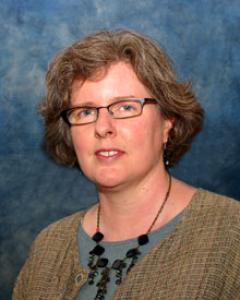 Toxic stress can affect more than just a pregnant woman.
Toxic stress can affect more than just a pregnant woman.
Julia Seng, professor in the school of nursing at the University of Michigan, says child abuse and neglect can affect more than one generation in a family.
Dr. Seng’s research focuses on the effects of posttraumatic stress disorder (PTSD) on women’s health and childbearing. Her projects approach this topic from a variety of perspectives. She used qualitative, participatory action research to understand women’s experiences and to inform intervention development. Epidemiological analyses have established that PTSD is associated with pregnancy complications and worse physical health across the lifespan for women. Clinical studies currently are examining neuroendocrine and genetic pathways that link PTSD to preterm birth, lower birth weight, and pregnancy complications. Clinical trial testing of a psychoeducation program for women with abuse-related PTSD, known as the “Survivor Moms’ Companion” are underway in the US and Australia.
In addition to studying PTSD, Dr. Seng is working with collaborators in a new trajectory focusing on studies of oxytocin in relation to health outcomes in women.
Pregnancy and PTSD
Time Magazine named The Silence Breakers, the MeToo movement, as Person of the Year 2017. The stories describe how sexual harassment brings stress and loss of wellbeing.
A quieter silence-breaking movement has been going on as health researchers have shown that child abuse and neglect also take a toll by creating toxic stress. This can take the form of posttraumatic stress disorder or PTSD and can also cause chronic pain and disease in later life.
Our research team focuses on the 1 in 5 women who are survivors of child abuse and neglect. We explore how toxic experiences like this can create traumatic stress that affects their childbearing experience and outcomes. We found 8% had PTSD during pregnancy. And PTSD that was from child abuse and neglect increased risk for early birth and difficulties with breastfeeding, depression and bonding.
We recently looked at how this might be happening. One hundred and eleven women gave us saliva samples so we could measure the stress hormone cortisol. Women with the complex type of PTSD that can result from childhood abuse and neglect had early pregnancy cortisol levels 8 to 10 times higher than other women. So they and their fetus together were experiencing traumatic and toxic stress that may be contributing to worse outcomes like prematurity.
It makes me think of the MeToo campaign—but spelled differently: Me t-W-o. Because it affects two generations at the same time.
There are implications for how we care for moms who are trauma-survivors. We can respond with trauma-informed maternity care to decrease their PTSD reactions and toxic stress. We can create and test PTSD interventions for pregnant women. This is a next step for our research team.


Comments
One response to “Julia Seng, University of Michigan – Pregnancy and PTSD”